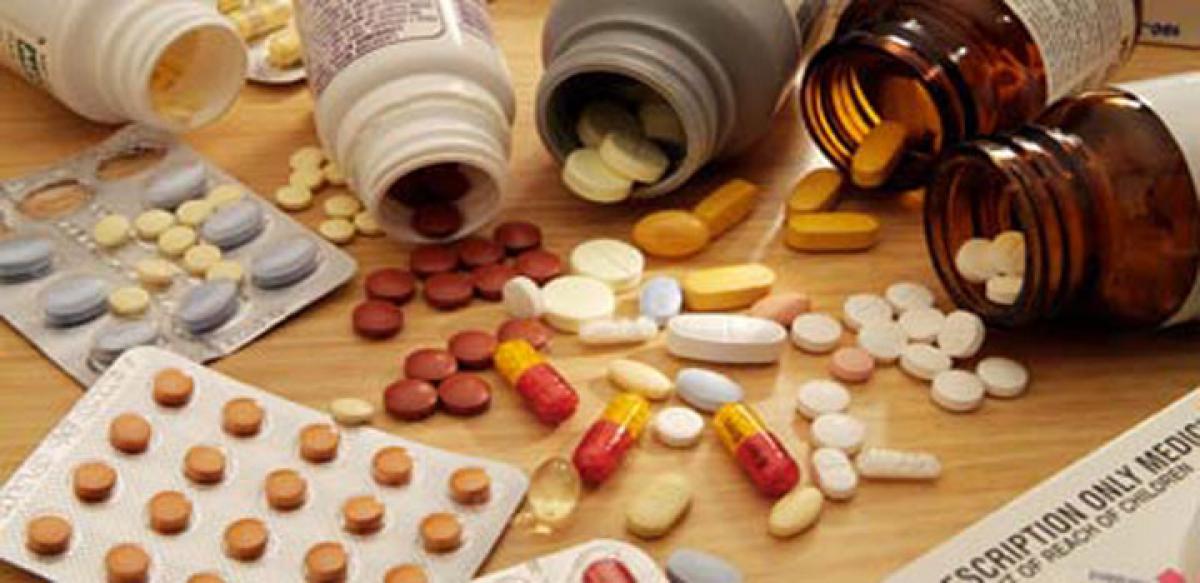Live
- Sri Aurobindo’s vision: Bridging the gap for holistic human evolution
- Sri Radha Govinda Ratha Yatra conducted
- A feast of music, dance and drama
- Mohan Babu denies absconding amid legal controversy
- Swift City to boost industrial growth in Bengaluru
- Allu Arjun walks out free after spending night in jail
- Congress harbours no grudge against any actor: TPCC chief
- Allu Arjun meets Upendra after release from prison, wishes for his ‘UI’ film
- Government Launches Uniform Diet Plan to Boost Student Health and Education
- Robust Security Arrangements for TSPSC Group-2 Exams in Jogulamba Gadwal
Just In

The prices of generic drugs are all set to rise on par with the branded ones, thanks to the US-led trade deal.

US Trade Deal
New Delhi: The prices of generic drugs are all set to rise on par with the branded ones, thanks to the US-led trade deal.
The Indian drug majors’ claim that the trade deal to shield the new drug data from the competitors would hurt Indian business in those 12 nations signed the Trans-Pacific Partnership (TPP), including United States.
Speaking on behalf of the Indian pharma industry, Indian Pharmaceutical Alliance (IPA), DG Shah pointed out that, "The generics decline will be discernible from the end of 2017."
It means the arrival of new cheap drugs will be delayed due to the new deal. The critics of the deal including advocacy groups like Medecins Sans Frontieres say it will increase the prices of medicines around the world in the long run.
Even the US Democratic party presidential candidate Hillary Clinton warned that the deal seemed to put the interests of big US drug companies ahead of patients.
Commenting on the development, the economic and law professor at Columbia University, Jagdish Bhagwati, said the deal was part of a trend to include trade-unrelated features on labour and intellectual property into trade deals, at the behest of US lobbies.
Citing details leaked by Wikileaks, as the text has not been formally released, Shah said TPP sought to extend patent life, make it easier to ‘evergreen’ patents, and abolish rules allowing generic companies to undertake product development during the life of the patent.
"These and many other provisions will delay the launch of generics in the USA and other TPP member states,” said Shah.
The focus of criticism is a clause in the deal that would allow companies in member countries to keep the clinical data on new biological drugs hidden for up to eight years.
This clause would effectively delay the launch of cheaper forms, or biosimilars, of such drugs by other companies, said Judit Rius Sanjuan, a legal policy adviser for MSF in New York.
Even so, the clinical data clause was not as restrictive as the 12 years the US pharmaceutical industry wanted.
"There has been a push back from member countries, which has reduced the data exclusivity period," said Kiran Mazumdar Shaw, chief of Biocon Ltd. "(This) should work to the advantage of Indian biopharma," she opined.
Meanwhile, the DIPP secretary Amitabh Kant, said it was too early to say what impact the deal would have on the Indian industry.a

© 2024 Hyderabad Media House Limited/The Hans India. All rights reserved. Powered by hocalwire.com







